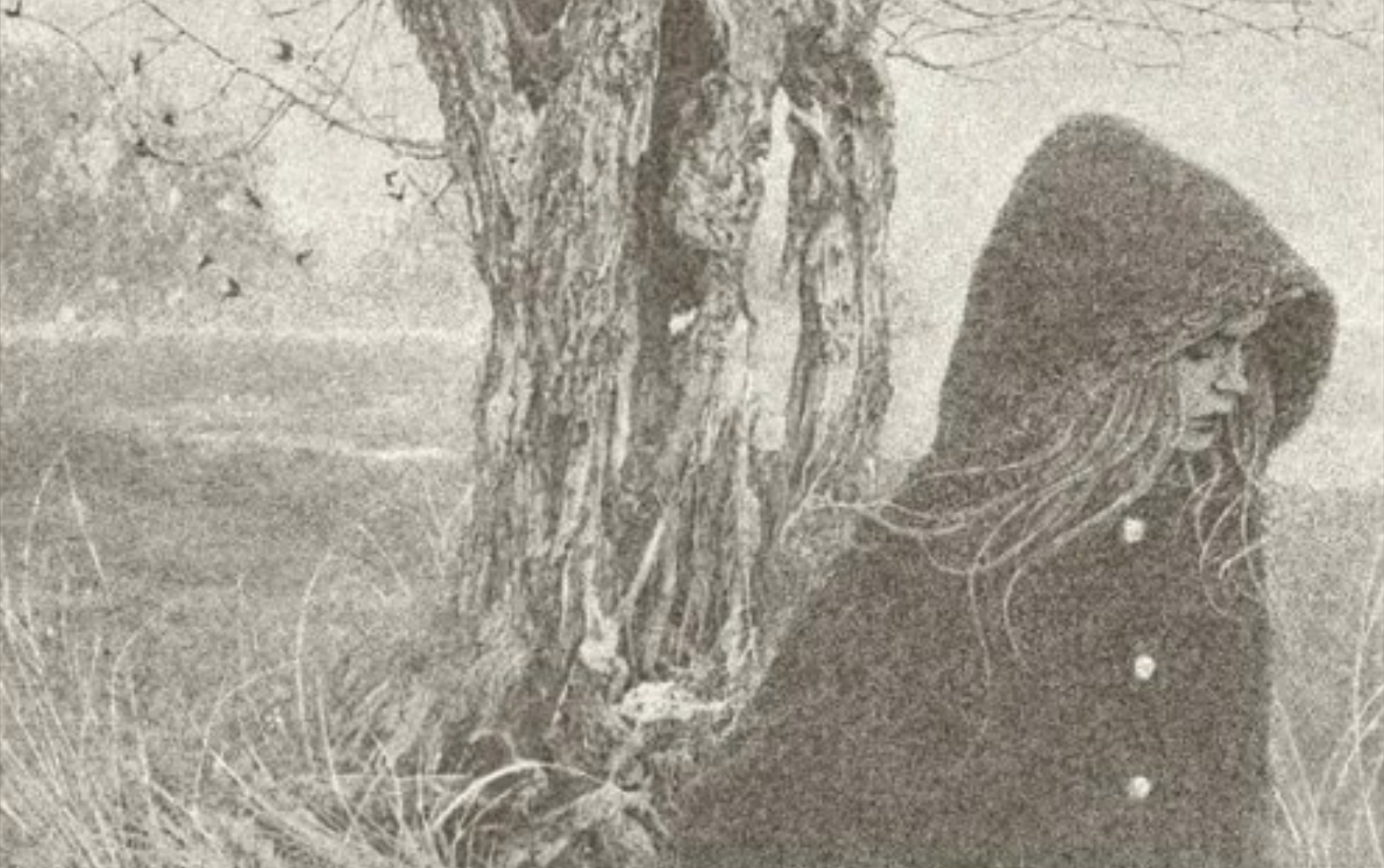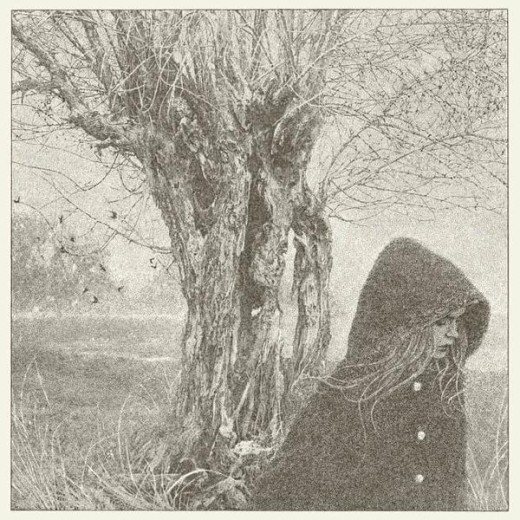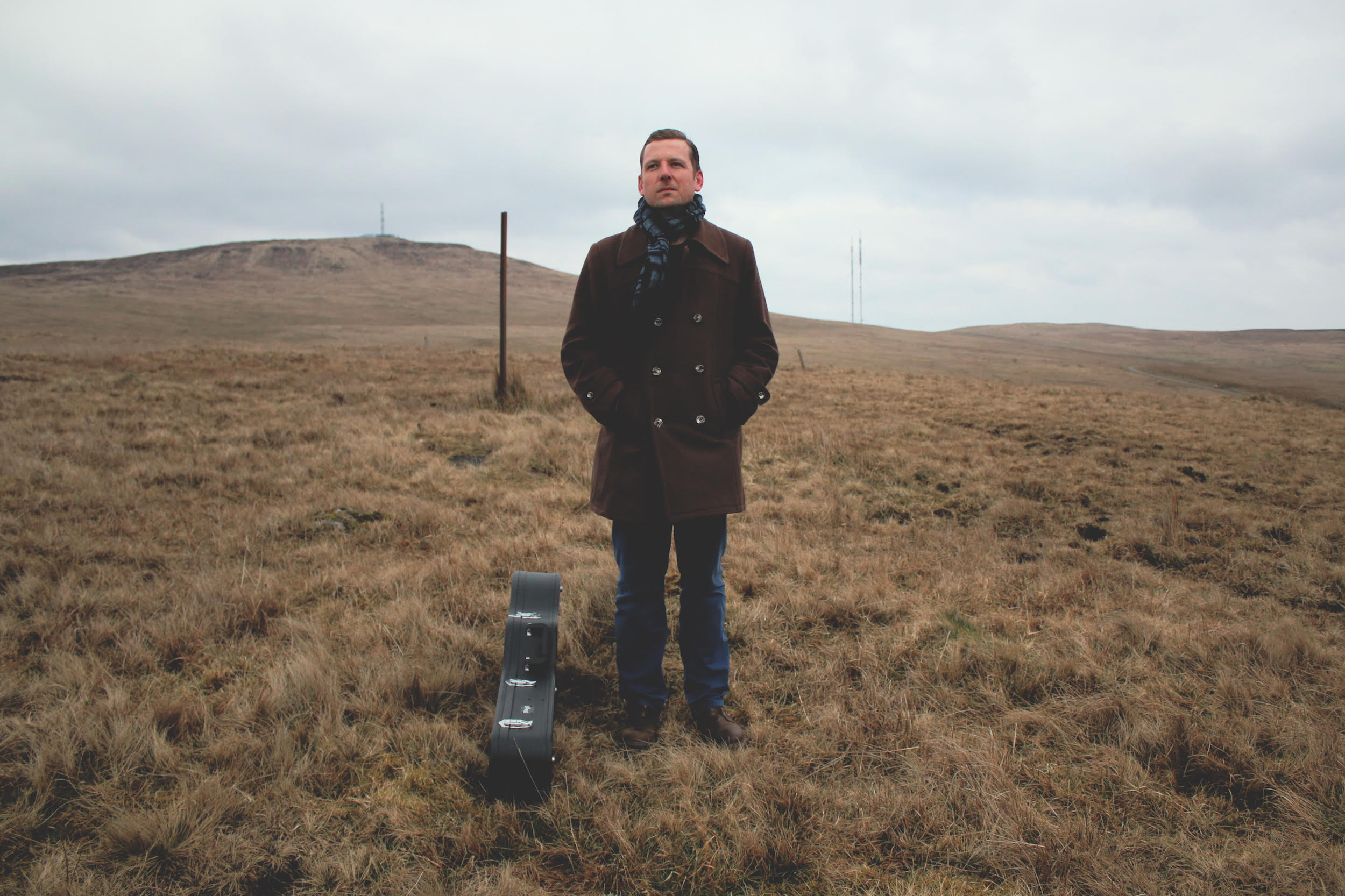Lankum (under their previous name Lynched) released their well received debut album, Cold Old Fire three years ago. Having been plugging away for some time on the live scene, this record helped establish the band as one of the luminaries of a recent wave of Irish folk. Alongside acts such as Landless, Spook of the Thirteenth Lock, and The Gloaming and individual artists such as Lisa O’Neill and Brigid Mae Power, amongst many others, Lankum represent a new generation of practitioners, deeply aware of and knowledgeable of the folk tradition, yet unafraid to draw from beyond the confines of the genre to create something new.
This spirit of old blended with new is much in evidence on the band’s sophomore release, the nine track Between The Earth And Sky. The record opens with a spine-tingling rendition of an old Traveller ballad collected some years ago from Mary Delaney, ‘What Will We Do When We Have No Money?’ With a powerfully plaintive lead vocal by Radie Peat and subtle backing vox and drone accompaniment, this opener deftly sets out the band’s stall. This is followed by a rollicking rendition of Peader Kearney’s comic anti-recruitment ballad, ‘Sergeant William Bailey’.
A sombrely defiant four part vocal rendition of ‘The Peat Bog Soldiers’ follows, a popular anti-fascist song that has been translated into many languages and is perhaps best known in Ireland from Luke Kelly’s rendition. Written in a Nazi concentration camp, it has a renewed potency in these turbulent times of a resurgent right in Europe and America.
The album’s fourth track, the instrumental ‘Townie Polka’, is a variant of an old Jacobite air, best known as the ‘White Cockade’. Although not without its merit, given its hypnotic, repetitive movement, it is perhaps the least essential cut on the album. ‘Bad Luck To The Rolling Water’ is a charming, bawdy band original in the Dublin music hall tradition rendered here with aplomb, that seems destined to become a mainstay of ballad sessions for years to come.
The two subsequent tracks form the emotional core of the album.‘Déanta In Éireann’, another original composition is an emigrant ballad, epic in scope, sung in the main by Ian Lynch. Across seven minutes the song uses the quandary of the Irish emigrant to address the state of the nation, with a wry humour and more than a dash of bitterness. It recalls the diasporic vignettes that were a mainstay of the Pogues’ and Black 47’s golden years.
Where the people are weak, and the people are spent,
Running in circles ’til their legs they are bent,
Lamenting the price of the petrol and rent,
We are slow to learn in ould Éireann.
This is followed by another hard hitter, the Radie Peat led ‘The Granite Gaze’, which recalls the downcast ire of the previous record’s title track, ‘Cold Old Fire’. The song presents an indictment of modern Ireland, to an increasingly turbulent instrumental backing.
The future’s further day by day, as our fathers turn away and we was clinging to our mother who eats her own
Two more traditional ballads round out the record: The expansive, drone-enveloped ‘The Turkish Reveille’, a variant on a whaling song known by a plethora of titles, clocks in at 12 minutes and is the album’s most epic moment. It’s followed by the murder ballad, ‘Willow Garden’. Both of these again highlight the band’s vocal power and ability to breathe new life into old songs.
Between The Earth And Sky is a set of songs that offers much to those new to the world of folk as well as to those already familiar with much of the material presented. Having long ago proved themselves fine live performers, this record helps solidify their status as serious, determined recording artists. CJ McCanney






